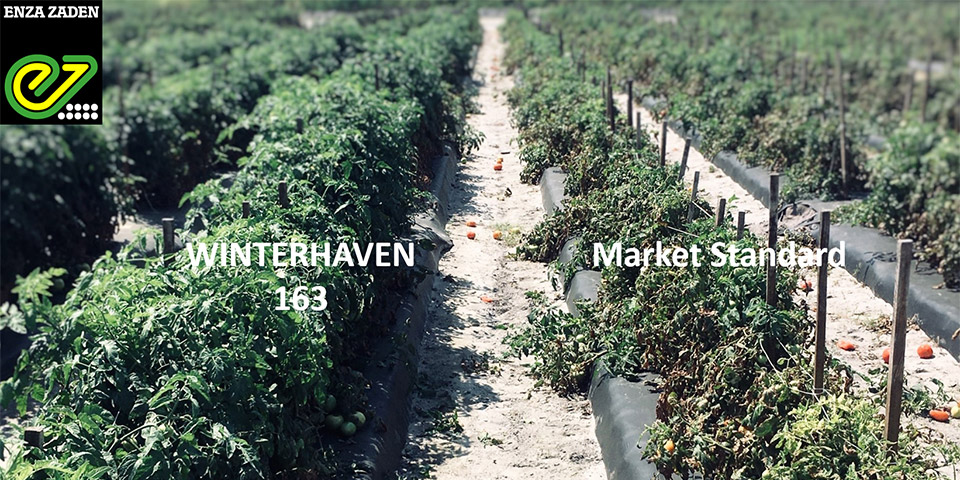
7 May 2019 News

A successful breeding program relies on communication with local growers. Enza Zaden works hard to listen and learn from local demand to develop varieties that can improve production cost. Today, high yield is no longer enough - varieties have to also be uniform in fruit shape and size, hold a good shelf life and be resistant to widely occurring and emerging diseases. These factors were driving us to generate a tomato variety such as Winterhaven.
Winterhaven is a variety with an outstanding disease resistance package which sets the hybrid apart from the competition. Among the resistances that it has, Winterhaven showed a high level of Tomato Yellow Leaf Curl Virus (TYLCV) resistance, which has been a devastating and widely occurring tomato disease in the Florida and Georgia areas.
TYLCV is transmitted by adult silverleaf whiteflies and can spread rapidly in tomatoes. Symptoms of a TYLCV-infected tomato plant include; stunting, leaf curling, and yellowing. This disease can have a severe impact on a grower’s tomato production – plants infected at an early age will not bear fruit due to flower abortion and growth will stop. Host plants include peppers, tomatoes, sow thistle, cheese weed and nightshade weeds.
TYLCV is a complex disease caused by different geminiviruses. According to Enza Zaden Tomato Breeder Jeremy Sisson, the pathogen is constantly changing and evolving which requires Enza Zaden breeders to continue to improve the resistance level of varieties. This pathogen persists in Florida and Georgia areas because of the following reasons:
TYLCV can cause up to 100% yield loss. Understanding the significance of the disease, Enza Zaden incorporates the resistance as a “must have” resistance in our commercial hybrids developed for Georgia and Florida growing areas.
Winterhaven is a variety that is adapted in Florida for the production slot/planting time (end of November to mid-February). While most available commercial varieties produce flat fruit shape during this slot, Winterhaven maintains a consistent round shape that is suitable for slicing tomatoes.

The Winterhaven variety is also resistant to other major diseases including: